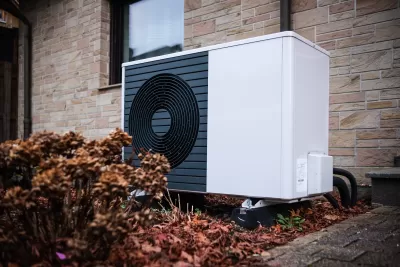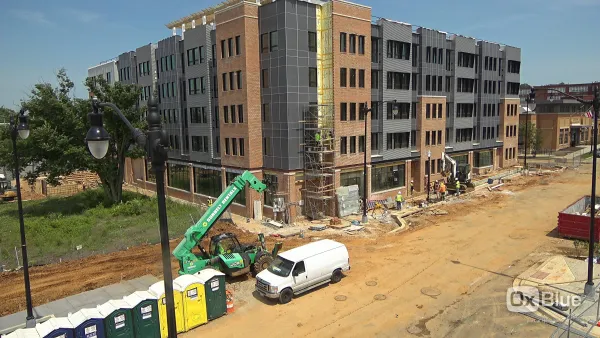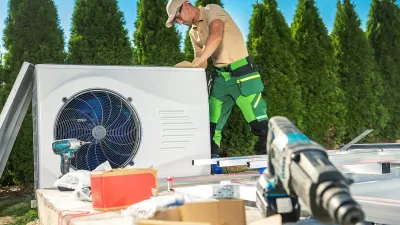A first-of-its-kind’ program will connect roughly 40 residential and commercial buildings to an underground geothermal network that will replace fossil fuel-powered furnaces.

A neighborhood in Framingham, Massachusetts will soon be connected to a networked geothermal system that replaces fossil fuel-burning furnaces with zero-emissions heat.
Adele Peters describes the project in an article on Fast Company. The first program of its kind run by a utility in the United States, it will serve “around 40 buildings, including low-income apartments, single-family homes, small businesses, and the neighborhood fire station.”
Capturing underground heat is an efficient way to heat buildings, and can be made even more efficient by a shared system. “In Framingham, Eversource will use a looping pipe system that reaches hundreds of feet below street level. In the winter, liquid flowing through the pipe is warmed by the underground temperature and then brings that energy up into heat pumps in buildings. In the summer, excess heat from the buildings is sent back underground, providing air-conditioning.”
According to Peters, “The pilot is expected to cost $14.7 million, though costs will drop as utilities gain more experience.” Eversource, the utility, is paying setup costs for residents who agreed to be part of the two-year pilot program. “The approach could provide a smoother path to decarbonization than relying on building owners to make changes individually, at least in urban areas where there’s enough density to support this type of network.”
FULL STORY: In this Massachusetts neighborhood, nearly every home is switching to geothermal energy

Planetizen Federal Action Tracker
A weekly monitor of how Trump’s orders and actions are impacting planners and planning in America.

Restaurant Patios Were a Pandemic Win — Why Were They so Hard to Keep?
Social distancing requirements and changes in travel patterns prompted cities to pilot new uses for street and sidewalk space. Then it got complicated.

Map: Where Senate Republicans Want to Sell Your Public Lands
For public land advocates, the Senate Republicans’ proposal to sell millions of acres of public land in the West is “the biggest fight of their careers.”

Maui's Vacation Rental Debate Turns Ugly
Verbal attacks, misinformation campaigns and fistfights plague a high-stakes debate to convert thousands of vacation rentals into long-term housing.

San Francisco Suspends Traffic Calming Amidst Record Deaths
Citing “a challenging fiscal landscape,” the city will cease the program on the heels of 42 traffic deaths, including 24 pedestrians.

California Homeless Arrests, Citations Spike After Ruling
An investigation reveals that anti-homeless actions increased up to 500% after Grants Pass v. Johnson — even in cities claiming no policy change.
Urban Design for Planners 1: Software Tools
This six-course series explores essential urban design concepts using open source software and equips planners with the tools they need to participate fully in the urban design process.
Planning for Universal Design
Learn the tools for implementing Universal Design in planning regulations.
Heyer Gruel & Associates PA
JM Goldson LLC
Custer County Colorado
City of Camden Redevelopment Agency
City of Astoria
Transportation Research & Education Center (TREC) at Portland State University
Camden Redevelopment Agency
City of Claremont
Municipality of Princeton (NJ)





























